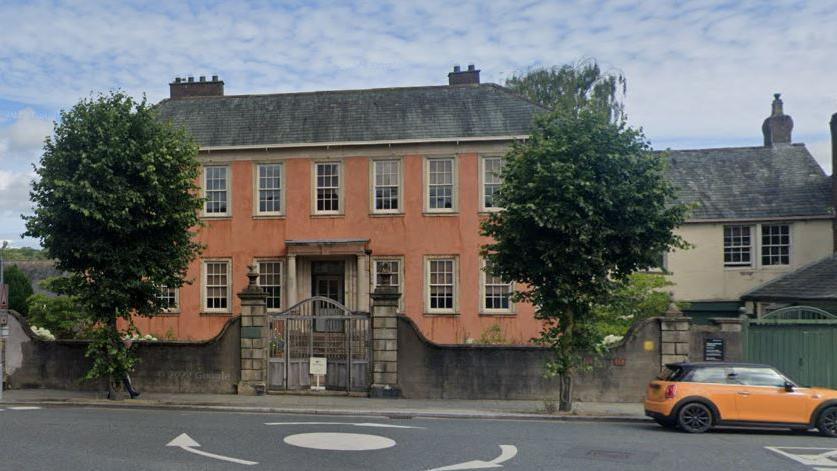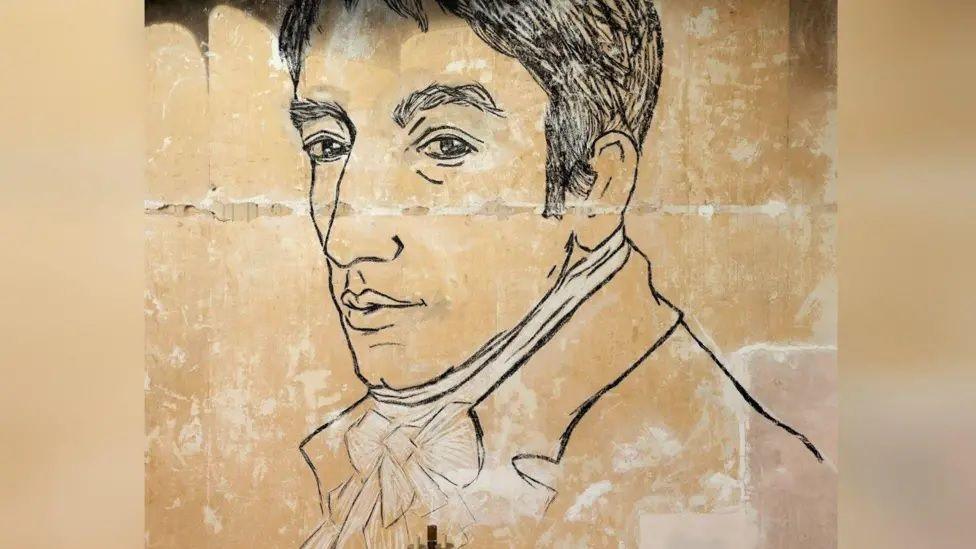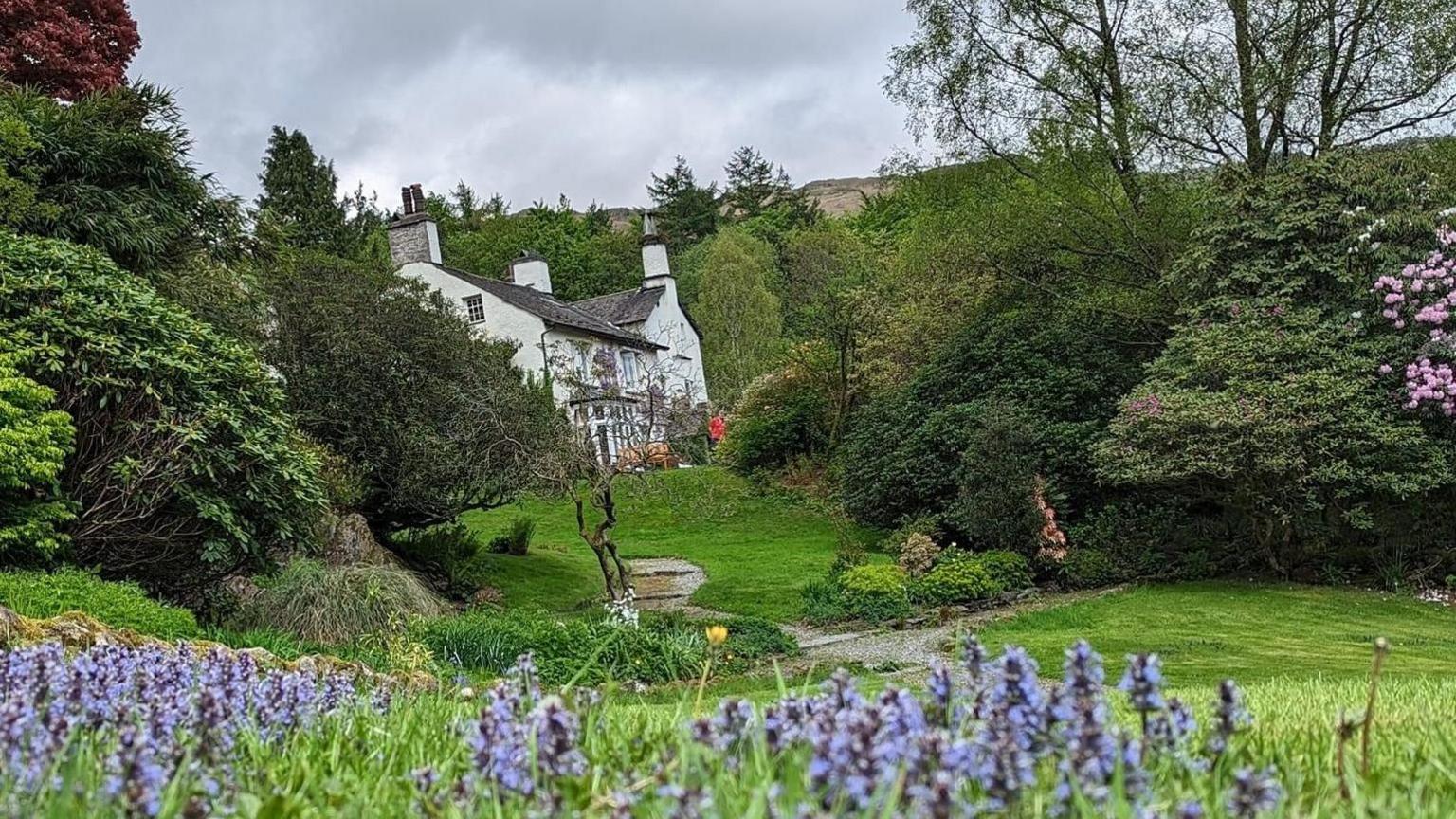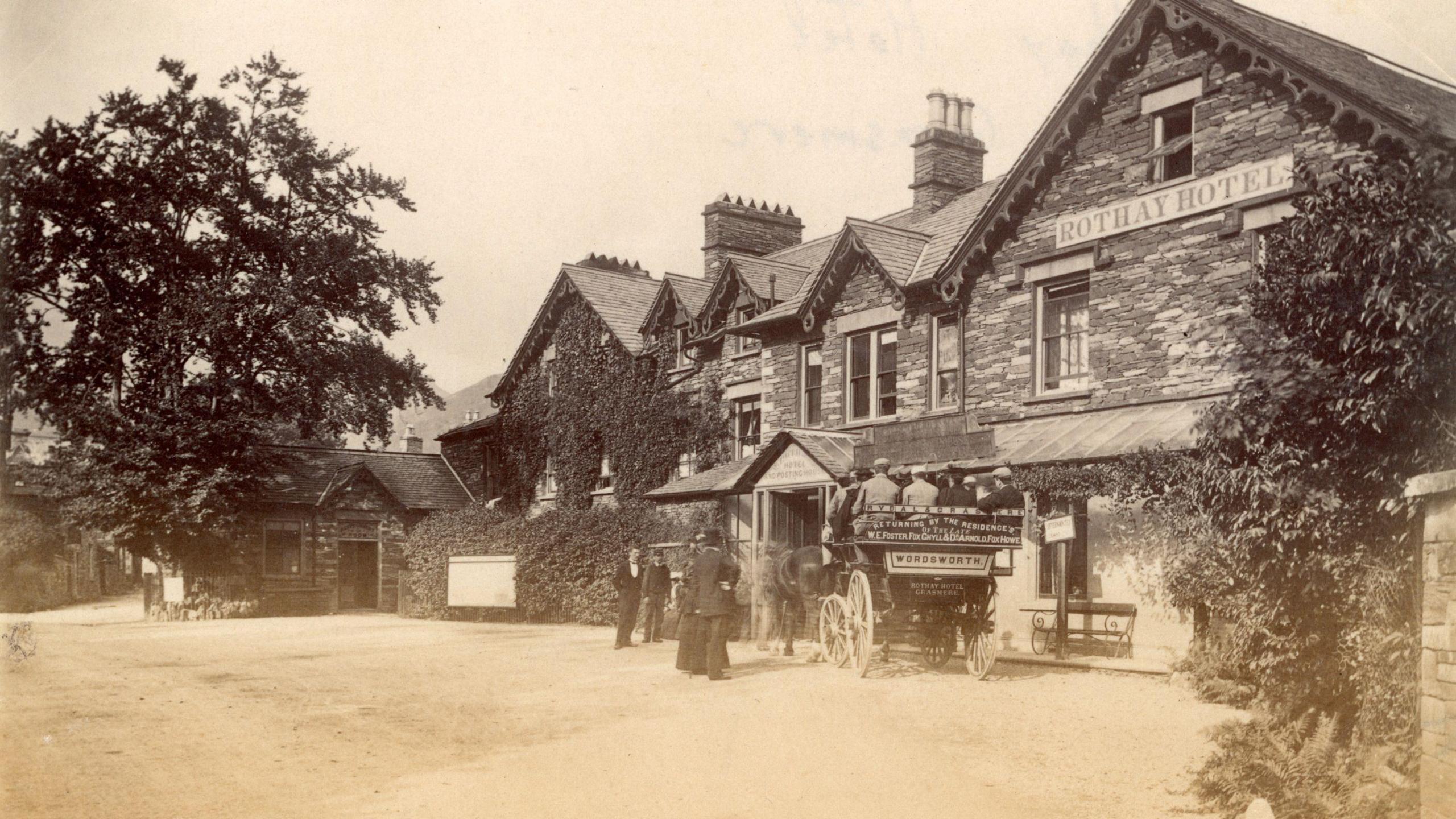Fears over future of Wordsworth's childhood home

William Wordsworth was born in Cockermouth in 1770 and his house is a National Trust property
- Published
Fears have been raised over the future of the house where the celebrated Romantic poet William Wordsworth was born.
The National Trust, which owns Wordsworth House in Cockermouth, Cumbria, said the attraction was underused and although not being closed permanently, it was consulting on a "new, sustainable model", which would focus more on its gardens.
Doreen Bertram, a volunteer at the house, said she was "really disappointed" and feared it could have an impact on the town's economy, as it was "a major draw".
The National Trust said if Wordsworth House remained open as a "pay-for-entry experience" it would continue to lose "significant amounts" of money.
Mrs Bertram said the National Trust told volunteers its plans would include a reduction in opening days, the potential for visits to only take place in the garden and proposed staff redundancies.
The National Trust declined to confirm it was proposing redundancies at Wordsworth House, but said earlier this month it had announced it would look to cut 6% of jobs across its organisation nation-wide, in a bid to save £26m.
'For everyone, for ever'
Mrs Bertram, who had worked at Wordsworth House for six years after a career in the NHS, before becoming a volunteer, said she feared changes would lead to the site's closure.
"By closing the house the history will have gone from that plot of land and we will not be able to spread the word that Cockermouth was the starting point for the Poet Laureate," the 73-year-old said.
"It's very sad and I think it will impact on the rest of the town because people just won't come."

William Wordsworth died in 1850 at Rydal Mount, his family home in Ambleside
Joe Murray, co-chair of Cockermouth and District Chamber of Trade, said Wordsworth House was one of the town's main attractions, driving footfall to businesses.
"We want to work in partnership with [the National Trust] and other organisations, to ensure it remains open to all, at the heart of our town," he said.
He added the community had been responsible for saving the building from demolition in 1937, when there were plans to turn the site into a bus station.
"Today, the Wordsworth House website says the trust wants it 'to be looked after for everyone, for ever'. That's exactly what must happen."
The spokesperson for the National Trust said: "Our proposals aim to increase access, share the Wordsworth story more widely, and explore new uses for the space."
They added there would be a new model in place by 2027, following a consultation with the community and stakeholders.
Wordsworth was born in the Georgian building in the heart of Cockermouth in 1770.
In poems such as The Prelude, the poet reminisces about his childhood in the town.
Rydal Mount, in Ambleside, where Wordsworth lived from 1813 until his death in 1850, was recently put up for sale, with descendant Christopher Wordsworth saying it was "harder and harder" to manage the Lake District property from his home in London.
Follow BBC Cumbria on X, external, Facebook, external, Nextdoor and Instagram, external.
Get in touch
Do you have a story suggestion for BBC Cumbria?
Related topics
- Published23 April

- Published22 March
